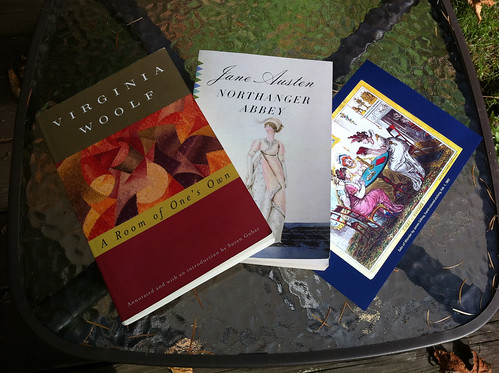I’m not one for con reports, as a rule. For one thing, after a con I generally collapse and sleep for two days. For another, it makes me feel bashful to list all the fine people I met and so forth. Bad enough that going to a con perforce involves (at least for we people of relatively restricted acquaintance) a certain amount of the middle-school sensation of standing in the cafeteria with a tray, scanning the tables. Having to list everyone publicly afterwards adds an added layer of anxiety-dream to that.
But one of the people I met at this World Fantasy was Ferrett Steinmetz, whose story “Under the Thumb of the Brain Patrol” appeared in the October/November Asimov’s with my “Termite Queen of Tallulah County”, and his con report, focusing on events rather than lists of people, inspired me. I think a smattering of events would give a better idea of the experience, anyhow. So: this is not exhaustive. I met many people and had many conversations, experiences, and plates of flaming cheese which I shall not mention here.
So:
Things that Happened at World Fantasy.
Sheila Williams Lunch: Finally, I got to meet the editor of Asimov’s in person! This allowed for far more chatting than e-mail does — yes, I know e-mails can be long, but they constantly confront you with their growing length, which is somewhat inhibitive. Sheila was just as kind and gracious as I had always suspected. And I promised her I will try to finish this novel I’m writing so I can get some more short stories finished. (No goal could be closer to my heart, to tell you the truth.)
Locus stuff: A Locus booth in the dealers’ room gave me the opportunity to put my March resolutions about subscribing into effect (plus I got a free issue! Beat that, internet convenience!) Plus I got to meet some folks from Locus, and I got my photo taken by a Locus photographer. They were taking pictures of “up and coming” spec-fic writers. Does this mean my photo will appear somewhere? I don’t know! It’s a mystery! I also got to meet Gardner Dozois, who gave me that review mentioned in March. He is very affable and we had a great chat.
Practiced introducing self: This is a big deal for me: introducing myself with the slightest of openings (“Hi, you said you liked my T-shirt when we shared an elevator car earlier.”) or no opening at all (“Hi, you are Gardner Dozois.”). I tried to encourage myself with a spirit of inquiry, but since it went well each time, my experimental data condemn me to wander the world, forcing my acquaintance on new people. Curse you, science!
Ellen Kushner Reading: I went to a reading by Ellen Kushner, where she read part of a story from the upcoming Welcome to Bordertown anthology and half of a very artsy chapbook story a friend of hers published in a limited edition. Of course, I had to buy one of the lovely things in the dealers’ room so I can find out what happens (and drool over the illustrations.) Somehow I’d managed not to previously connect the dots that Ellen Kushner is the host of a show on NPR, which explains (although causality could go either way here) why she’s the most graceful conversationalist I can recall.
Made important travel mistakes: My sadder but wiser conclusions include: travel earlier in the week rather than early in the morning. Book hotel rooms well in advance so you don’t have to leave while the con is still in full swing. Set an alarm for 24 hours before any Southwest flight so you can actually check in in a timely fashion.
Made pact to take over the world: One of the fabulous new people I met, Emily Jiang, is a fellow genre-warrior with every intention of continuing to write on both sides of the imaginary literary/speculative border and breaking down the wall between. We decided to team up and take over the world. You’ve been warned.




